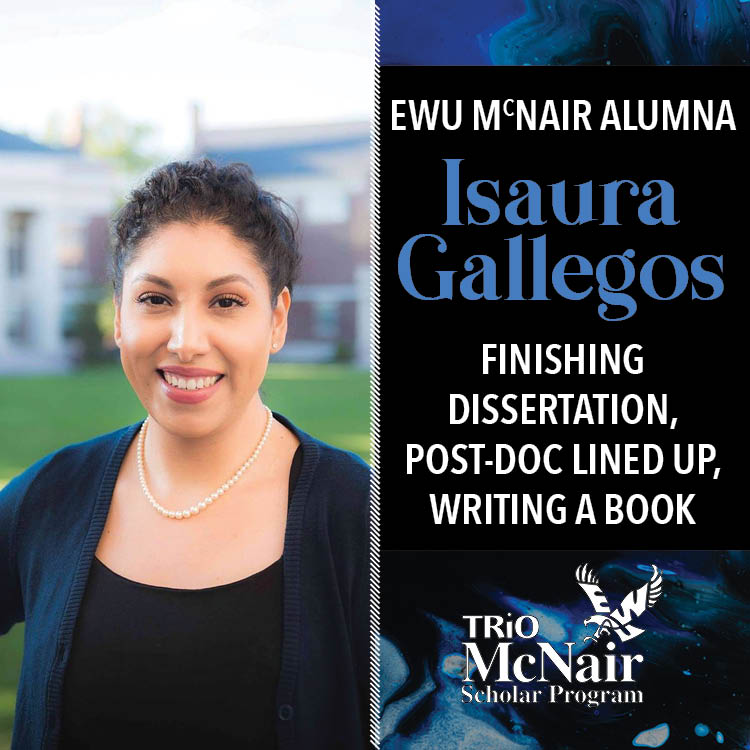 We recently reached out to EWU McNair Alumna Isaura Gallegos and she gave us updates on her amazing work! Next fall, Isaura will be defending her PhD dissertation at the Harvard Graduate School of Education, where she has been doing research in Human Development, Learning and Teaching. She has already secured a post doc appointment at Harvard’s Mazur Lab.
We recently reached out to EWU McNair Alumna Isaura Gallegos and she gave us updates on her amazing work! Next fall, Isaura will be defending her PhD dissertation at the Harvard Graduate School of Education, where she has been doing research in Human Development, Learning and Teaching. She has already secured a post doc appointment at Harvard’s Mazur Lab.
Isaura took time off from her graduate studies during the pandemic to run the PoLS-T Network with her advisor to address the immediate needs that physics educators encountered at the time. Their goal was to provide resources that could help educators transition into a virtual classroom. Since then the network has grown to over 600 teachers world wide. Additionally, Isaura has been coordinating a community of practice of 15 physics high school teachers who are conducting their own research projects to improve their teaching/student learning — this is very much inspired and modeled after her time as a McNair scholar!
Isaura is also working on a children’s book that merges childhood development and naive physics understanding to explore gravitational pull on the moon.
The following abstract from a departmental talk given by Isaura describes her dissertation research well:
Introductory undergraduate physics courses serve as gateways to careers in science, technology, engineering, and math (STEM). Yet, undergraduate physics programs in the United States generally lack diversity in the student body, which poses a complex challenge. Educational and physics education researchers argue for the implementation of active learning pedagogies as one potential way to increase diversity in undergraduate physics classrooms. In general, active learning pedagogies move away from lecture-based modes of instruction and into activities that aim to promote deep student engagement with content. Working in groups, or collaborative teamwork, is often paired with other active learning strategies, such as Peer Instruction. Existing research suggests student learning outcomes measured by academic achievement and reported learning benefits are largely positive when engaging in collaborative teamwork compared to direct instruction. In this colloquium, I present a mixed methods study of student reflections that reveals that while collaborative teamwork can promote conceptual physics understanding, it can also introduce student stressors, largely absent in lecture-based courses. Namely, the construct of psychological safety, the degree to which a person feels comfortable taking risks within the context of a group, reveals that not all students feel equally safe contributing in a collaborative physics classroom context. In this presentation, I plan to discuss an analysis of student psychological safety in collaborative physics teams. And I discuss implications for equitable student learning in the physics classroom.

